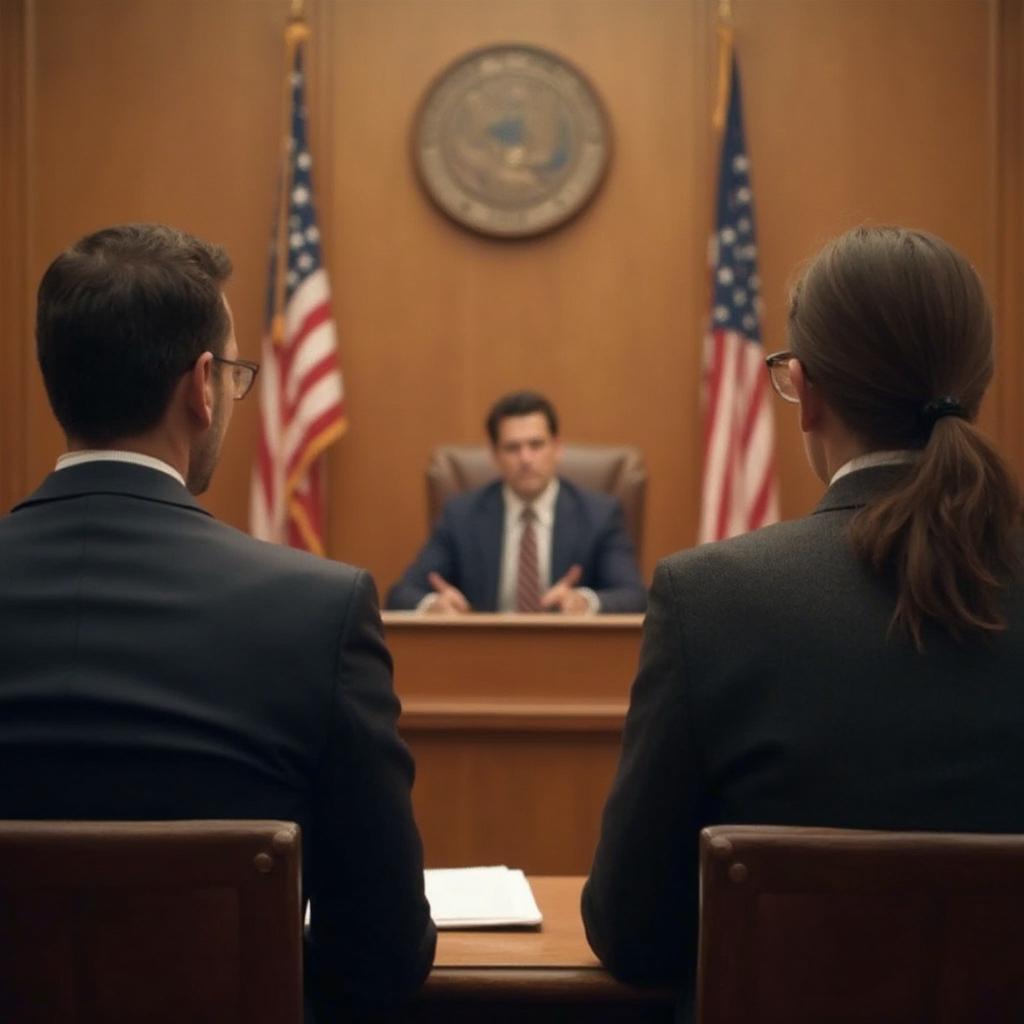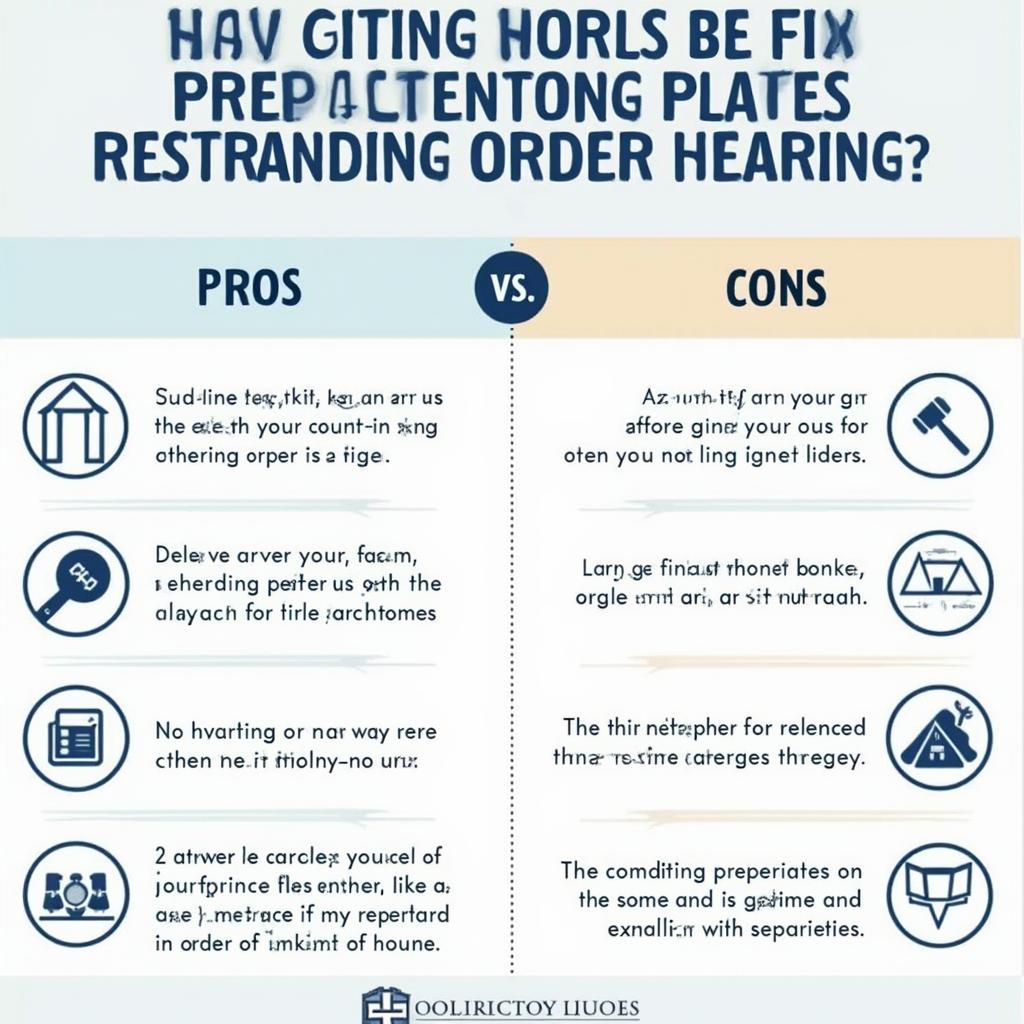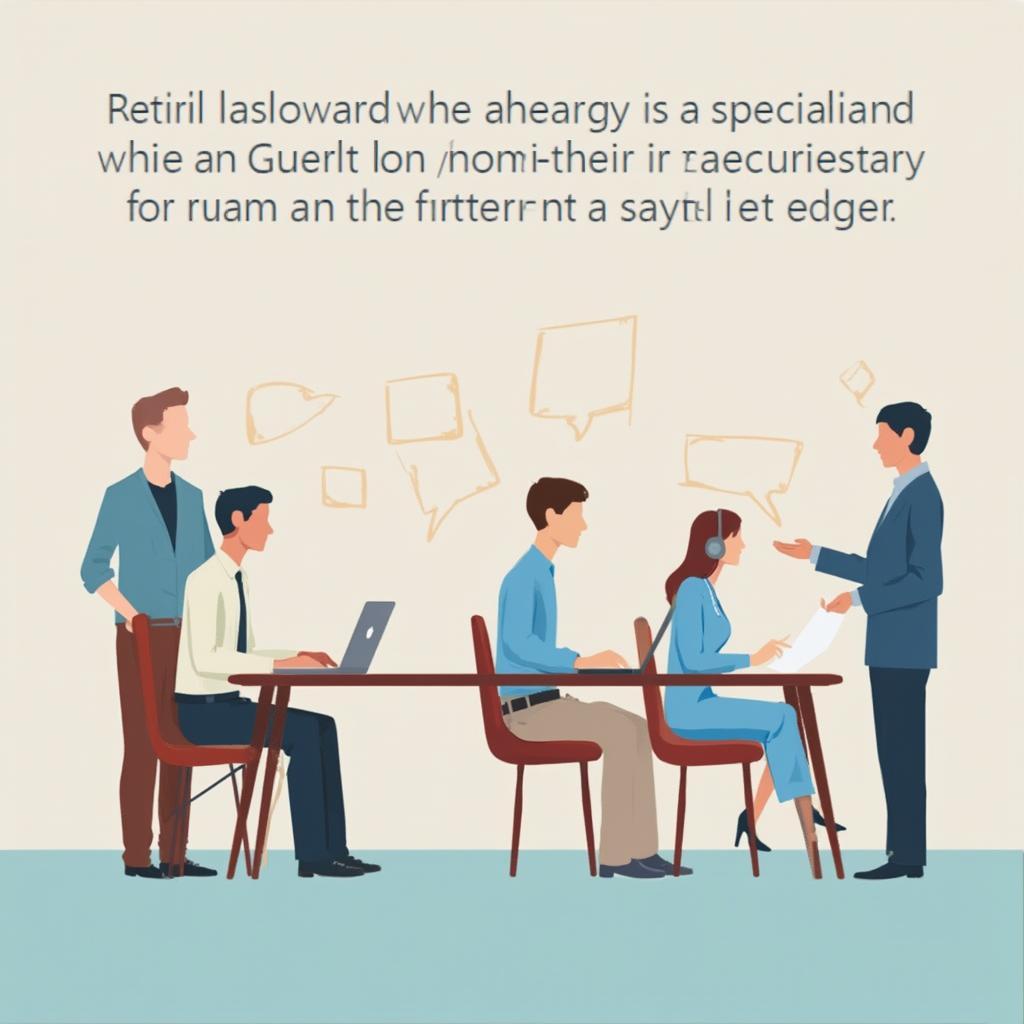
Do I Need an Attorney for a Restraining Order Hearing?
Navigating the legal complexities of a restraining order can be daunting. Many individuals facing this situation wonder, “Do I need an attorney for a restraining order hearing?” The answer, while not always simple, is crucial for protecting your rights.
A restraining order, also known as a protective order, is a legal document issued by a court that orders someone to stay away from another person. These orders are often issued in cases involving domestic violence, harassment, stalking, or other forms of abuse. The process can be complex, involving multiple hearings and significant legal paperwork. Understanding the nuances of the law and presenting a compelling case is often the key to a successful outcome, regardless of which side of the petition you are on. Therefore, having legal representation can significantly impact your case.
Understanding the Benefits of Legal Counsel in Restraining Order Cases
While you are not legally required to have an attorney for a restraining order hearing, the benefits are substantial. An attorney experienced in these cases can help you navigate the complexities of the law, gather evidence, and present your case effectively. They can also advise you on your rights and responsibilities throughout the process.
Why Legal Representation Matters
Having an attorney can level the playing field, especially if the other party has legal representation. They can challenge evidence presented against you, cross-examine witnesses, and negotiate on your behalf. If you are seeking the restraining order, they can help you articulate your case, present evidence of abuse or harassment, and ensure the order includes the necessary protections.
Navigating the Restraining Order Process with an Attorney
The process for obtaining or defending against a restraining order varies by jurisdiction. However, generally, it involves filing a petition, serving the other party, and attending one or more hearings. An attorney can guide you through each step, ensuring you comply with all legal requirements and deadlines.
 Restraining Order Court Hearing
Restraining Order Court Hearing
Gathering Evidence and Building Your Case
A strong case requires compelling evidence. Your attorney can help you gather evidence such as police reports, medical records, photographs, text messages, and witness testimonies. They can also help you prepare for cross-examination and present your testimony effectively.
Representing Yourself vs. Hiring an Attorney
While representing yourself is possible, it can be challenging, especially if you are unfamiliar with the legal system. An attorney can provide the expertise and support you need to navigate this complex process.
 Representing Yourself vs. Hiring an Attorney for a Restraining Order
Representing Yourself vs. Hiring an Attorney for a Restraining Order
Making the Best Decision for Your Situation
Whether or not you hire an attorney is a personal decision. Consider the complexity of your case, the potential consequences, and your comfort level with representing yourself. If you are unsure, consulting with an attorney can help you make an informed decision. do you need an attorney for a restraining order
Finding the Right Attorney for Your Restraining Order Case
Choosing the right attorney is crucial for a successful outcome. Look for an attorney with experience in restraining order cases and a track record of success.
 Finding the Right Attorney for a Restraining Order Case
Finding the Right Attorney for a Restraining Order Case
Key Qualities to Look For
- Experience in restraining order cases
- Knowledge of local laws and procedures
- Strong communication and advocacy skills
- A compassionate and understanding approach
In conclusion, while not mandatory, having an attorney for a restraining order hearing can significantly improve your chances of a favorable outcome. They can provide expert legal guidance, build a strong case, and represent your interests effectively. If you are facing a restraining order hearing, consult with an attorney to discuss your options and protect your rights. Do i need an attorney for a restraining order hearing? Consider the benefits and make an informed decision.
Frequently Asked Questions
- What is a restraining order? A restraining order is a court order that protects a person from harassment, stalking, or violence.
- How long does a restraining order last? The duration varies by jurisdiction but can range from months to years.
- Can I modify a restraining order? Yes, you can petition the court to modify the terms of a restraining order.
- What happens if I violate a restraining order? Violating a restraining order can result in arrest and criminal charges.
- Do I need an attorney to file for a restraining order? While not required, an attorney can significantly help in navigating the legal complexities.
- Can I get a restraining order against someone who lives in another state? It depends on the specific circumstances and the laws of both states. An attorney can advise you on the best course of action.
- What types of evidence are helpful in a restraining order case? Police reports, medical records, photographs, text messages, and witness testimonies can all be valuable evidence. An attorney can help you gather and present this evidence effectively.




